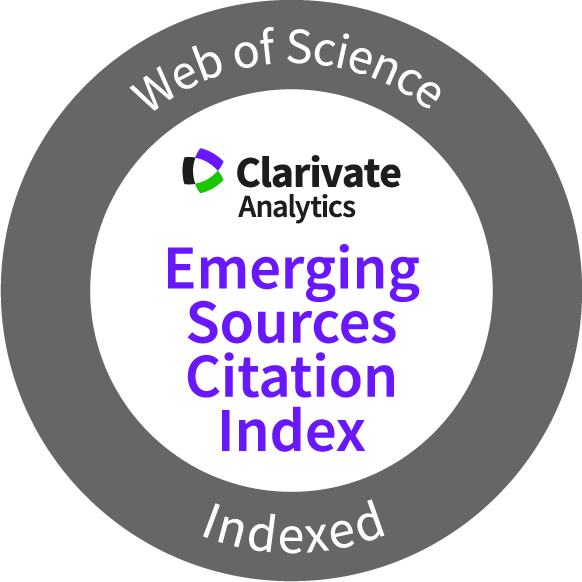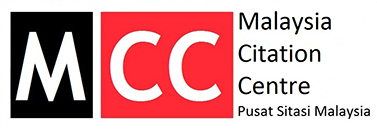EFFICACY OF Nigella sativa OIL TO RELIEVE EFFECTS OF THE LEAD MONOXIDE TOXICITY ON TESTICULAR EFFICIENCY AND SEXUAL BEHAVIOUR DISORDERS IN ALBINO RATS
Keywords:
Lead monoxide, Nigella sativa oil, sexual behaviour, sex hormones, sperm parameters, testicular toxicityAbstract
The prevalence of testicular toxicity induced via contamination with heavy metals is increasing worldwide, and a close connection between testicular toxicity and lead has recently been identified. The present study demonstrated the possible therapeutic and protection properties of Nigella sativa oil (NSO) against dangerous testicular toxicity and sexual behaviour disorders in rat models induced by lead monoxide (PbO) food poisoning. A total of 24 male rats were used and divided into four groups, consisting of Group 1: Control (1 mL of distilled water); Group 2: PbO (80 mg/kg); Group 3: NSO (0.5 mL/rat); and Group 4: (NSO+PbO) 0.5 mL/rat of NSO, followed by PbO (80 mg/kg/day) respectively for 60 days. The testosterone, follicle-stimulating hormone (FSH), luteinizing hormone (LH), 17 beta-hydroxysteroid dehydrogenase activity (17β-HSD), sperm parameters, and sexual behaviour (copulation behaviour test) were measured. The results showed that sex hormone levels were significantly decreased (p<0.05) in rats exposed to PbO, while the levels of these hormones were significantly higher in rats exposed to NSO and NSO+PbO. The sperm parameters (numbers, concentrations, motilities, and abnormality) were lower in rats exposed to PbO compared to those in the control, NSO, and NSO+PbO groups that showed significant increases. Sperm abnormality and 17β-HSD activity showed a significant increase at p<0.05 in the group exposed to the PbO compared to those of the control, NSO, and NSO+PbO groups. The results also significantly suppressed sexual behaviour in rats exposed to PbO compared to those in the control, NSO, and NSO+PbO groups, rats were administered NSO+PbO showed improvement in sexual behaviour parameters compared to PbO groups. PbO toxicity was obvious in the reproductive tract through severe histopathological changes. The impact of lead on tissues was partially mitigated by NSO. The study showed protective effects of N. sativa oil against changes in sex hormones, sperm characteristics, and sexual behaviour in male rats exposed to lead monoxide-induced testicular toxicity.
Downloads
Metrics
References
Abarikwu, S.O., Duru, Q.C., Chinonso, O.V. & Njoku, R.C. 2016. Antioxidant enzymes activity, lipid peroxidation, oxidative damage in the testis and epididymis, and steroidogenesis in rats after co-exposure to atrazine and ethanol. Andrologia, 48(5): 548-557. DOI: https://doi.org/10.1111/and.12478
Ahmad, A., Husain, A., Mujeeb, M., Khan, S.A., Najmi, A.K., Siddique, N.A., Anwar, F. 2013. A review on therapeutic potential of Nigella sativa: A miracle herb. Asian Pacific Journal of Tropical Biomedicine, 3(5): 337–352. DOI: https://doi.org/10.1016/S2221-1691(13)60075-1
Al-Masri, S.A. 2015. Effect of pumpkin oil and vitamin E on lead induced testicular toxicity in male rats. The Journal of Animal and Plant
Sciences, 25(1): 72–77.
Aloke, C., Uzuegbu, I.E., Ogbu, P.N., Ugwuja, E.I., Orinya, O.F. & Obasi, I. O. 2019. Comparative assessment of heavy metals in drinking water sources from Enyigba Community in Abakaliki Local Government Area, Ebonyi State, Nigeria. African Journal of Environmental Science and Technology, 13(4): 149-154. DOI: https://doi.org/10.5897/AJEST2018.2517
Ara, A. & Usmani, J.A. 2015. Lead toxicity: a review. Interdisciplinary Toxicology, 8(2): 55–64. DOI: https://doi.org/10.1515/intox-2015-0009
Assi, M.A., Hezmee, M.N.M., Abba, Y., Yusof, M.S.M., Haron, A.W., Rajion, M.A. & AlZuhairy, M.A. 2016. Prophylactic effect ofNigella sativa against lead acetate induced changes in spermiogram, reproductive hormones and gonadal histology of rats. Veterinary World, DOI: https://doi.org/10.14202/vetworld.2016.1305-1311
(11): 1305–1311
Bataineh, H., Al-Hamood, M. H., & Elbetieha, A. M. 1998. Assessment of aggression, sexual behavior and fertility in adult male rat following long-term ingestion of four industrial metals salts. Human & Experimental Toxicology, 17(10): 570–576. DOI: https://doi.org/10.1191/096032798678907937
Boldyrev, M. 2018. Lead: properties, history, and applications. WikiJournal of Science, 1(2): 1-23. DOI: https://doi.org/10.15347/wjs/2018.007
Chabuk, H.A.H. 2019. Some physiological and histological changes in the male reproductive system of rats (Rattus rattus) experimentally infected with toxoplasma gondii. Biochemical and cellular archives, 19(2): 4393-4398.
Chowdhury, A.R. 2009. Recent advances in heavy metals induced effect on male reproductive function-A retrospective. Al Ameen J Med Sci, 2(2): 37–42.
Cobbina, S.J., Duwiejuah, A.B., Quansah, R., Obiri, S., & Bakobie, N. 2015. Comparative assessment of heavy metals in drinking water sources in two small-scale mining communities in northern Ghana. International Journal of Environmental Research and Public Health, 12(9): 10620-10634. DOI: https://doi.org/10.3390/ijerph120910620
Daku, A.B., & Salisu, A.I. 2016. Age-related effects of lead poisoning on sex hormones in adult male Wistar rats. Journal of Physiology and Pathophysiology, 7(4): 23–27. DOI: https://doi.org/10.5897/JPAP2015.0104
Darand, M., Hajizadeh, M., Mirmiran, P., & MokariYamchi, A. 2019. The effect of Nigella sativa on infertility infertility in men and women: a systematic review. Progress in Nutrition, 21: 33–41.
De Silva, S.F., & Alcorn, J. 2019. Flaxseed lignans as important dietary polyphenols for cancer prevention and treatment: chemistry, DOI: https://doi.org/10.3390/ph12020068
pharmacokinetics, and molecular targets. Pharmaceuticals, 12(2): 68.
Dirjomuljono, M., Kristyono, I., Tjandrawinata, R.R. & Nofiarny, D. 2008. Symptomatic treatment of acute tonsillo-pharyngitis patients with a combination of Nigella sativa and Phyllanthus niruri extract. Int J Clin Pharmacol Ther, 46(6):295–306. DOI: https://doi.org/10.5414/CPP46295
Elgawish, R.A.R., & Abdelrazek, H.M.A. 2014. Effects of lead acetate on testicular function and caspase-3 expression with respect to the protective effect of cinnamon in albino rats. Toxicology Reports, 1: 795–801. DOI: https://doi.org/10.1016/j.toxrep.2014.10.010
Farooq, Y., Hussain, M.M., Aleem, S.B., & Farooq, M.A. 2008. Lead intoxication: the extent of problem and its management. Pakistan Journal of Physiology, 4(2): 36–41.
Farrag, A.R.H. , Mahdy, K.A., Abdel Rahman, G.H. & Osfor, M.M. 2007. Protective effect of Nigella sativa seeds against lead-induced hepatorenal damage in male rats. Pakistan Journal of Biological Sciences, 10(17): 2809–2816. DOI: https://doi.org/10.3923/pjbs.2007.2809.2816
Gali-Muhtasib, H., El-Najjar, N., & Schneider-Stock, R. 2006. The medicinal potential of black seed (Nigella sativa) and its components. Advances in Phytomedicine, 2: 133–153. DOI: https://doi.org/10.1016/S1572-557X(05)02008-8
García-Lestón, J., Méndez, J., Pásaro, E., & Laffon, B. 2010. Genotoxic effects of lead: an updated review. Environment International, 36(6): 623–636. DOI: https://doi.org/10.1016/j.envint.2010.04.011
Hala, M.A., & Wahb, A. 2011. Protective effect of Nigella sativa, linseed and celery oils against testicular toxicity induced by sodium valproate in male rats. Journal of American Science, 7(5): 687-693.
Hassan, E., El-neweshy, M., Hassan, M., Noreldin, A. 2019. Thymoquinone attenuates testicular and spermotoxicity following subchronic lead exposure in male rats : Possible mechanisms are involved. Life Sci., 230: 132–140. DOI: https://doi.org/10.1016/j.lfs.2019.05.067
Heijkoop, R., Huijgens, P.T., & Snoeren, E.M.S. 2018. Assessment of sexual behavior in rats: The potentials and pitfalls. Behavioural Brain DOI: https://doi.org/10.1016/j.bbr.2017.10.029
Research, 352: 70–80.
Hu, B., Xue, J., Zhou, Y., Shao, S., Fu, Z., Li, Y., & Shi, Z. 2020. Modelling bioaccumulation of heavy metals in soil-crop ecosystems and identifying its controlling factors using machine learning. Environmental Pollution, 262 (114308): 1-7. DOI: https://doi.org/10.1016/j.envpol.2020.114308
Hussain, S., Habib-Ur-Rehman, M., Khanam, T., Sheer, A., Kebin, Z. & Jianjun, Y. 2019. Health risk assessment of different heavy metals
dissolved in drinking water. International Journal of Environmental Research and Public Health, 16(10): 1737.
Kapitula, T. 2015. Ordinary Differential Equations and Linear Algebra: A Systems Approach. SIAM, Philadelphia. 311 pp. DOI: https://doi.org/10.1137/1.9781611974096
Kianifard, D., Sadrkhanlou, R.A. & Hasanzadeh, S.H. 2011. The histological, histomorphometrical and histochemical changes of testicular tissue in the metformin treated and untreated streptozotocininduced adult diabetic rats. Veterinary research forum, 2(1): 13-24.
Kolahdooz, M., Nasri, S., Modarres, S.Z., Kianbakht, S. & Huseini, H.F. 2014. Effects of Nigella sativa L. seed oil on abnormal semen quality in infertile men: a randomized, double-blind, placebo-controlled clinical trial. Phytomedicine, 21(6): 901–5. DOI: https://doi.org/10.1016/j.phymed.2014.02.006
Leung, P.S. & Sernia, C. 2003. The renin-angiotensin system and male reproduction: new functions for old hormones. Journal of Molecular Endocrinology, 30(3): 263–270. DOI: https://doi.org/10.1677/jme.0.0300263
Mahdavi, R., Heshmati, J. & Namazi, N. 2015. Effects of black seeds (Nigella sativa) on male infertility: A systematic review. Journal of Herbal Medicine, 5(3): 133–139. DOI: https://doi.org/10.1016/j.hermed.2015.03.002
Mazen, N.F. & Zidan, R.A. 2017. Histological study on the effect of aroclor 1254 on the epididymis of adult rats and the role of L-NAME administration. Ultrastructural Pathology, 41(2): 154-167. DOI: https://doi.org/10.1080/01913123.2016.1278065
Mokhtari, M. & Zanboori, M. 2011. The effects of lead acetate on sexual behavior and the level of testosterone in adult male rats. International Journal of Fertility & Sterility, 5(1): 13–20.
Mollazadeh, H. & Hosseinzadeh, H. 2014. The protective effect of Nigella sativa against liver injury: a review. Iranian Journal of Basic Medical Sciences, 17(12): 958-966.
Mosbah, R., Yousef, M.I., Maranghi, F. & Mantovani, A. 2016. Protective role of Nigella sativa oil against reproductive toxicity, hormonal
alterations, and oxidative damage induced by chlorpyrifos in male rats. Toxicology and Industrial Health, 32(7): 1266–1277.
Naqvi, S.H., He, R., Haleem, D.J. & Naqvi, S.W. 2010. Effect of serotonin and dopamine in Pb induced behavioral deficits in rats. Pakistan
Journal of Biochemistry and Molecular Biology, 43(1): 19–22.
Navas-Acien, A., Guallar, E., Silbergeld, E.K. & Rothenberg, S.J. 2007. Lead exposure and cardiovascular disease- A systematic review. DOI: https://doi.org/10.1097/01.ede.0000276826.09109.df
Environmental Health Perspectives, 115(3): 472–482.
Rabinowitz, M. 1998. Historical perspective on lead biokinetic models. Environmental Health Perspectives, 106(suppl 6): 1461–1465. DOI: https://doi.org/10.1289/ehp.98106s61461
Rahman, S.A., Shaik Dawood, N.F., Basha, S.S. & Kamarzaman, S. 2013. Protective effect of black seedNigella sativa(L.) against cyclophosphamideinduced toxicity on reproductive and acrosomal function in mice. Middle East Journal of Scientific Research, 17(7): 955-64.
Sangi, S.M.A., Bawadekji, A., Alotaibi, N.M. & Aljalaud, N.A. 2019. Preventive and curative effects of metformin, Nigella sativa, Punica granatum and Zingiber officinale on male reproductive dysfunction in diabetic rats. International Journal of Pharmaceutical Research & Allied Sciences, 8(2): 48-57.
Sharma, R. & Garu, U. 2011. Effects of lead toxicity on developing testes in Swiss mice. Universal Journal of Environmental Research &
Technology, 1(4): 390-398. Sikka, S.C., & Wang, R. 2008. Endocrine disruptors and estrogenic effects on male reproductive axis. Asian Journal of Andrology, 10(1):134–145. DOI: https://doi.org/10.1111/j.1745-7262.2008.00370.x
Tavakkoli, A., Mahdian, V., Razavi, B.M. & Hosseinzadeh, H. 2017. Review on clinical trials of black seed (Nigella sativa) and its active constituent, thymoquinone. Journal of pharmacopuncture, 20(3): 179–193. DOI: https://doi.org/10.3831/KPI.2017.20.021
Wani A.L., Ansari M.O., Ahmad M., Parveen, N., Siddique, H.R. & Shadab, G.G. 2019. Influence of zinc levels on the toxic manifestations of lead exposure among the occupationally exposed workers. Environmental Science and Pollution Research, 26(32): 33541-33554. DOI: https://doi.org/10.1007/s11356-019-06443-w
Wani, J.A., Tsagkaris, C., Majid, S., Ganie, M.A., Akhter, R., Ahmad, S.B. & Wani, H.A. 2022. Therapeutic effects of Nigella sativa on hormonal dysfunctions. Elsevier. 217-238 pp. DOI: https://doi.org/10.1016/B978-0-12-824462-3.00001-9
Wu, X., Cobbina, S.J., Mao, G., Xu, H., Zhang, Z. & Yang, L. 2016. A review of toxicity and mechanisms of individual and mixtures of heavy metals in the environment. Environmental Science and Pollution Research, 23(9): 8244-8259. DOI: https://doi.org/10.1007/s11356-016-6333-x
Yaman, İ. & Balikci, E. 2010. Protective effects of Nigella sativa against gentamicin-induced nephrotoxicity in rats. Experimental and Toxicologic Pathology, 62(2): 183–190. DOI: https://doi.org/10.1016/j.etp.2009.03.006
Yimer, E.M., Tuem, K.B., Karim, A., Ur-Rehman, N. & Anwar, F. 2019. Nigella sativa L.(black cumin): a promising natural remedy for wide range of illnesses. Evidence Based Complementary and Alternative Medicine, 2019: 1-16. DOI: https://doi.org/10.1155/2019/1528635
Yoon, H., Enquist, L.W. & Dulac, C. 2005. Olfactory inputs to hypothalamic neurons controlling reproduction and fertility. Cell, 123(4): 669–682. DOI: https://doi.org/10.1016/j.cell.2005.08.039
Zaoui, A., Cherrah, Y., Mahassini, N., Alaoui, K., Amarouch, H. & Hassar, M. 2002. Acute and chronic toxicity of Nigella sativa fixed oil. Phytomedicine, 9(1): 69–74. DOI: https://doi.org/10.1078/0944-7113-00084
Published
How to Cite
Issue
Section
Any reproduction of figures, tables and illustrations must obtain written permission from the Chief Editor (wicki@ukm.edu.my). No part of the journal may be reproduced without the editor’s permission





















